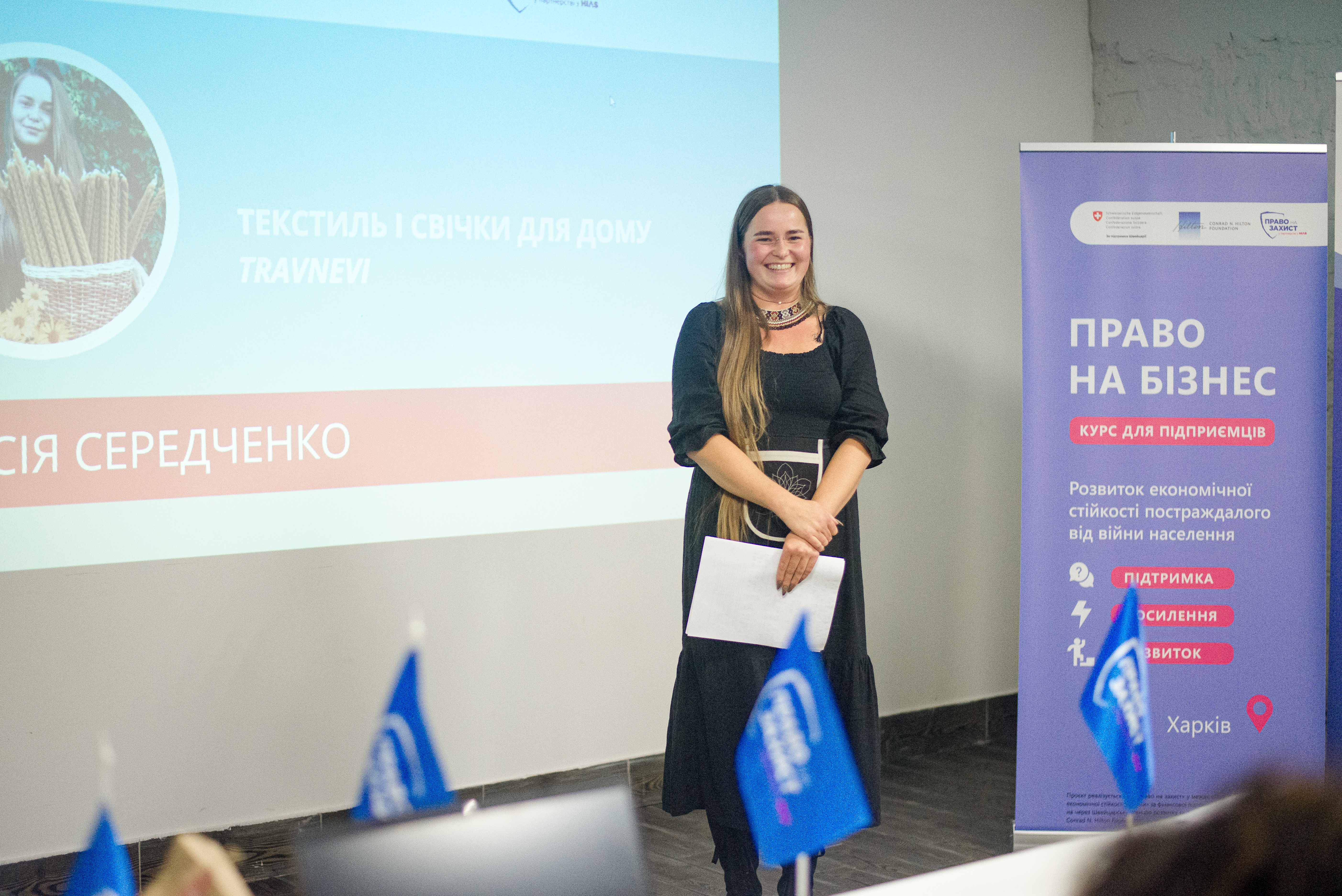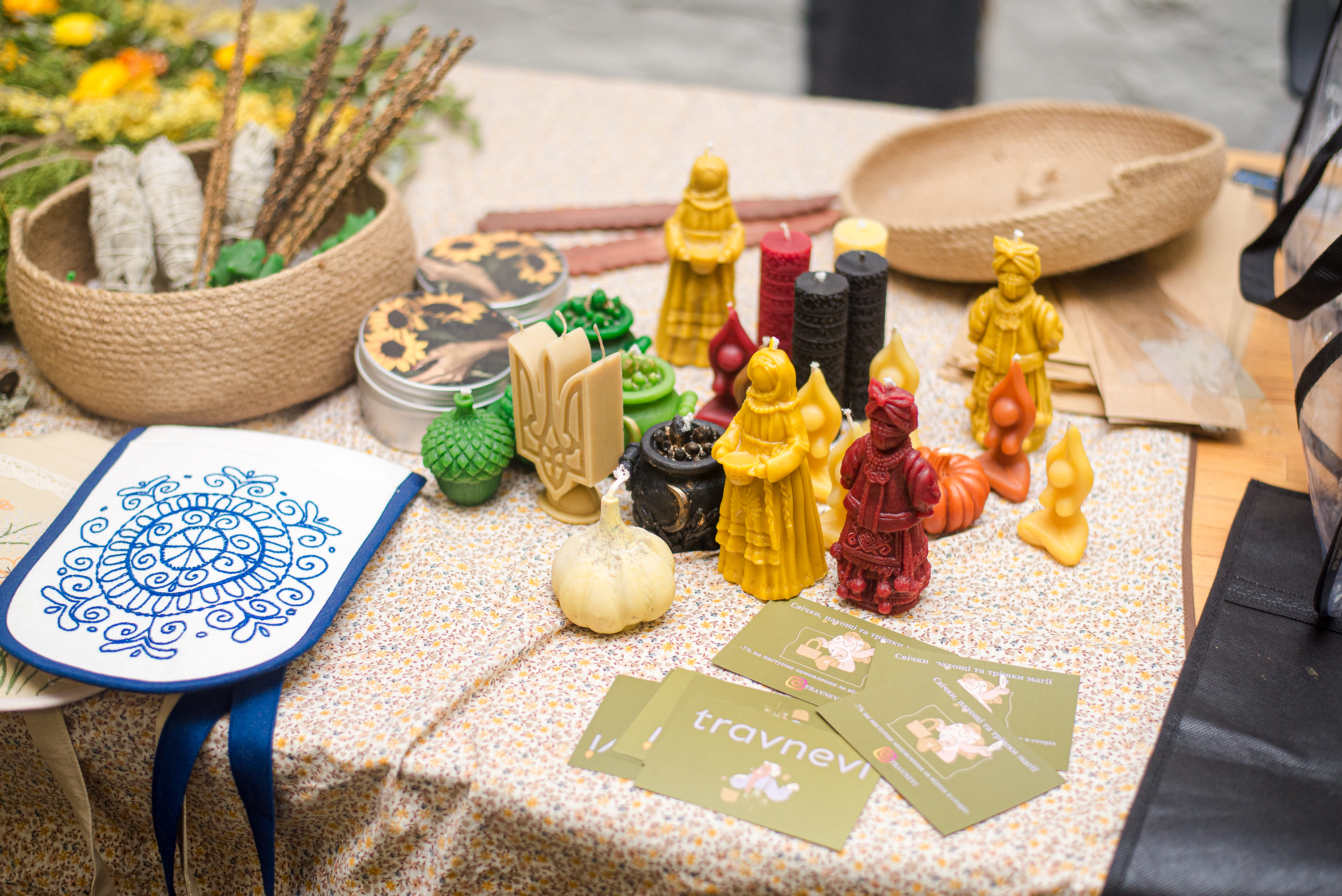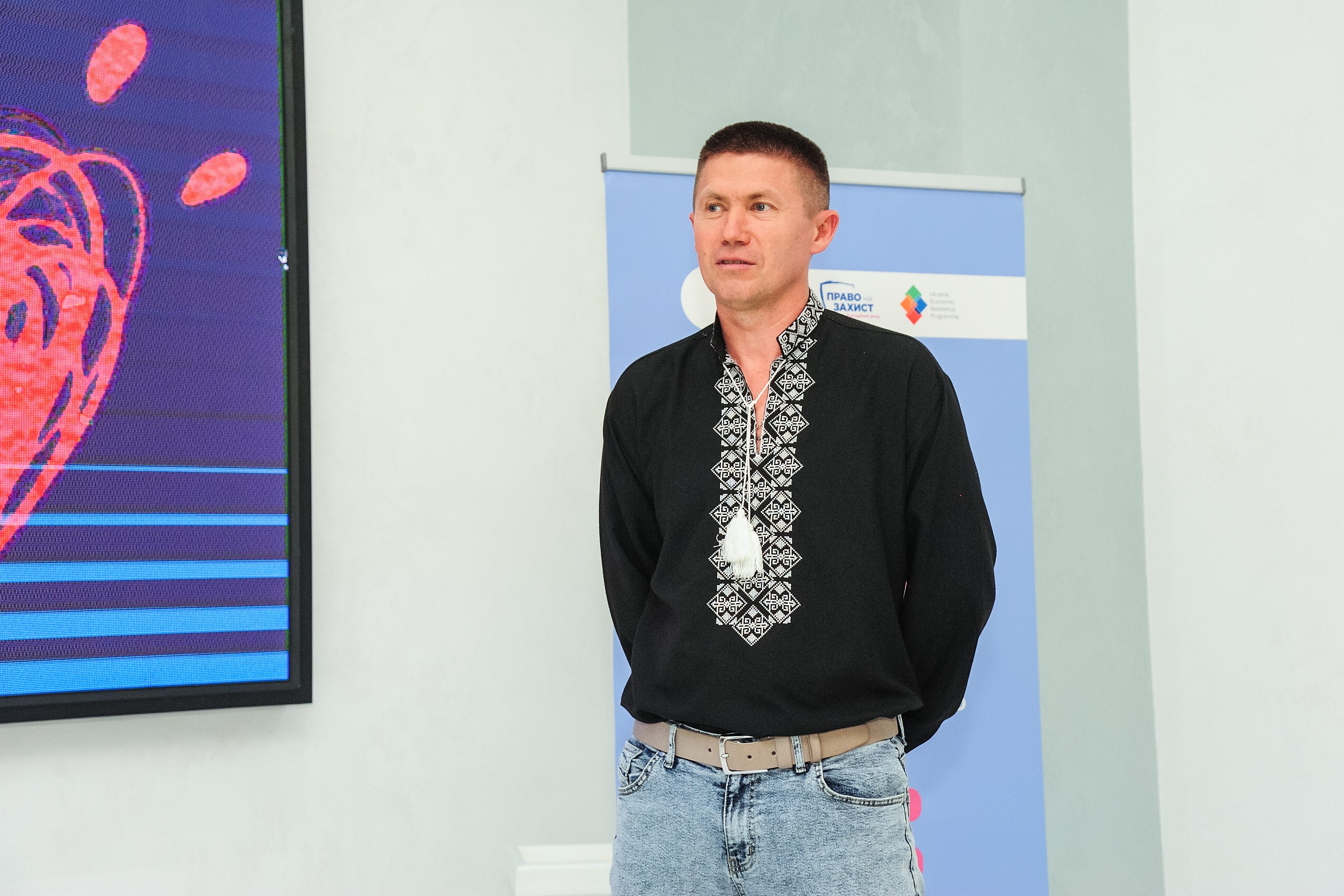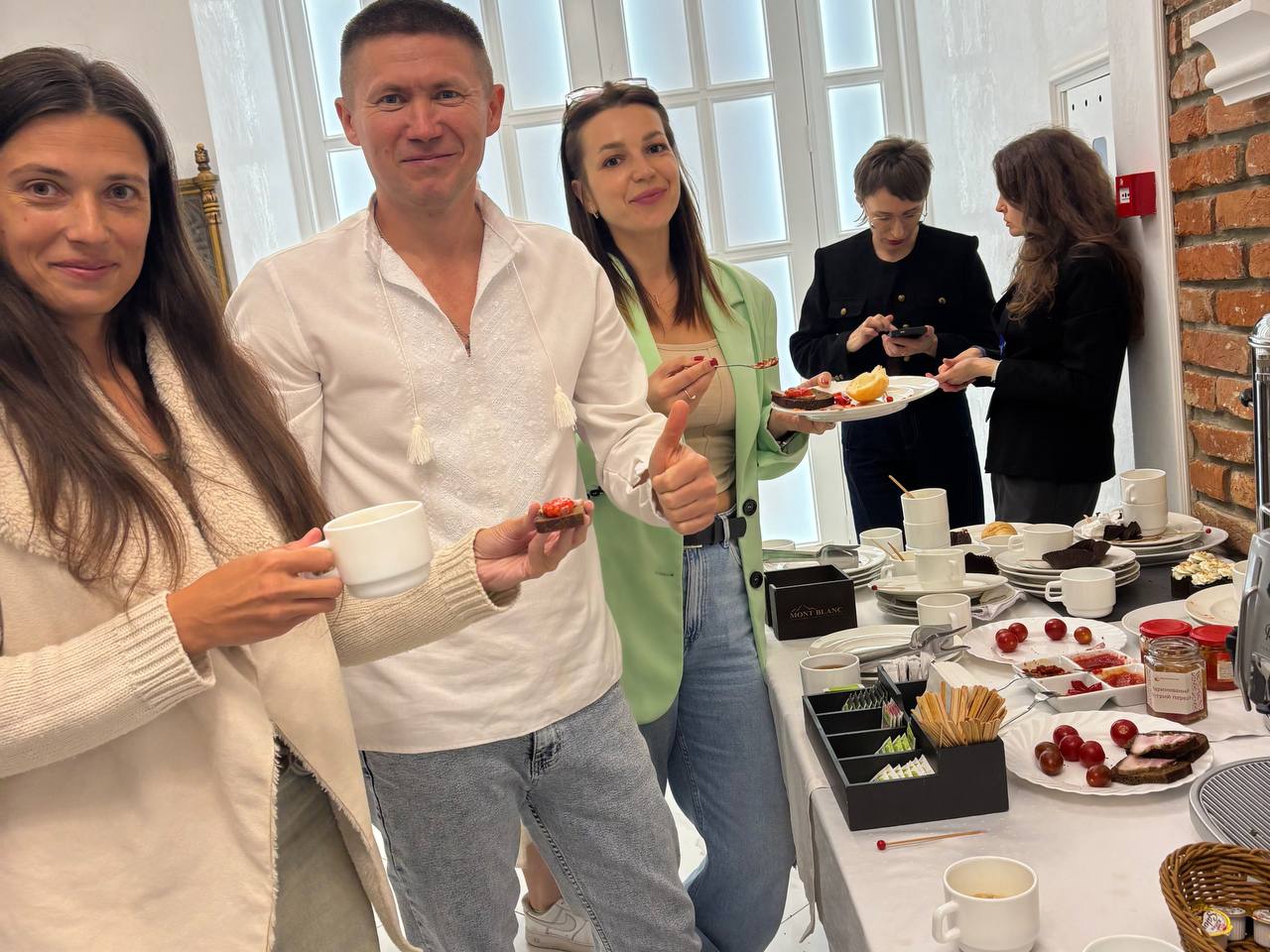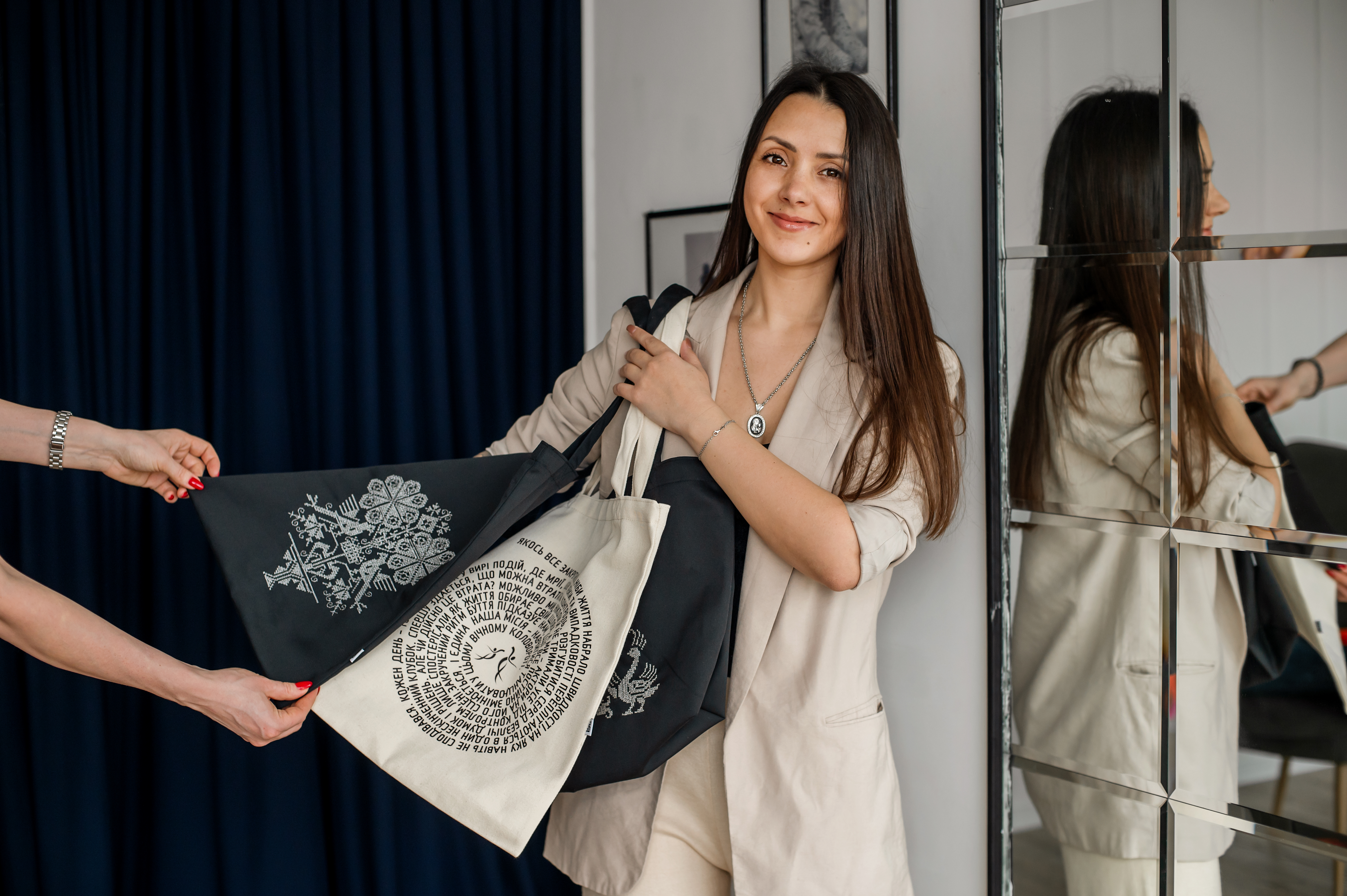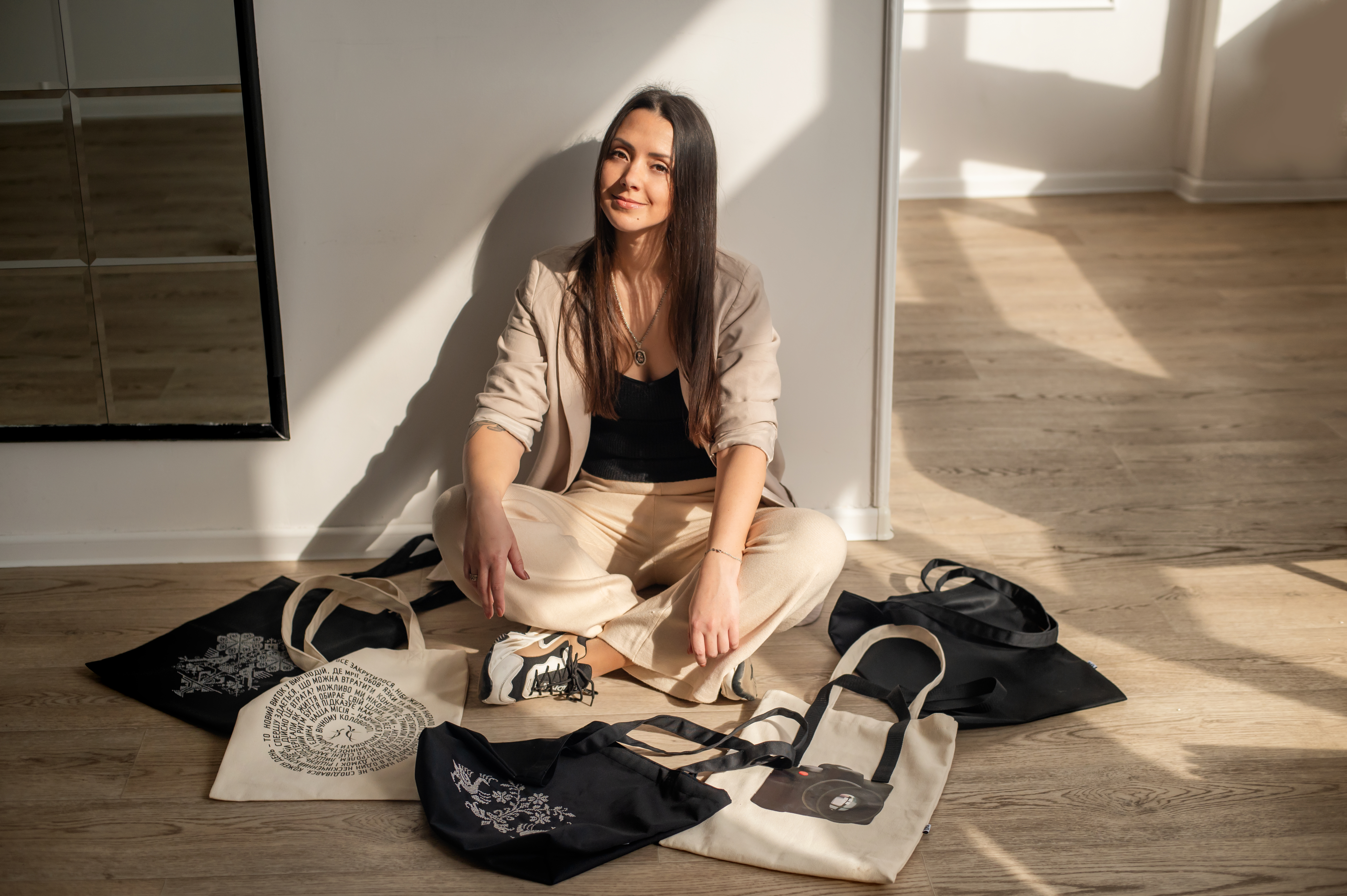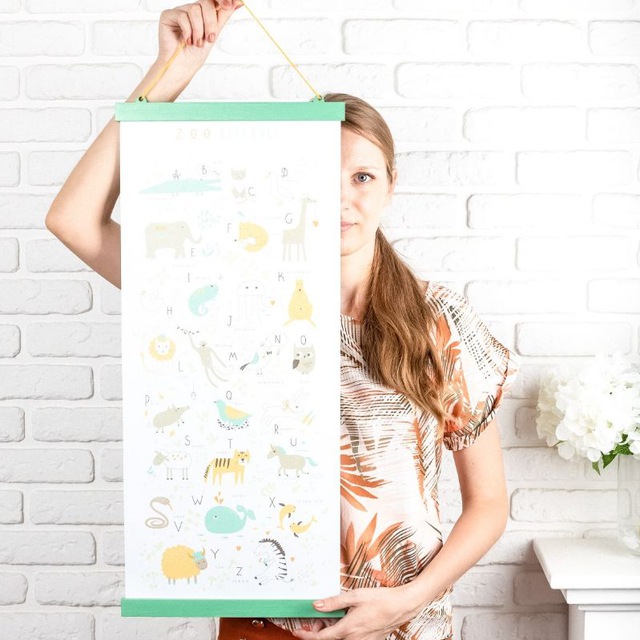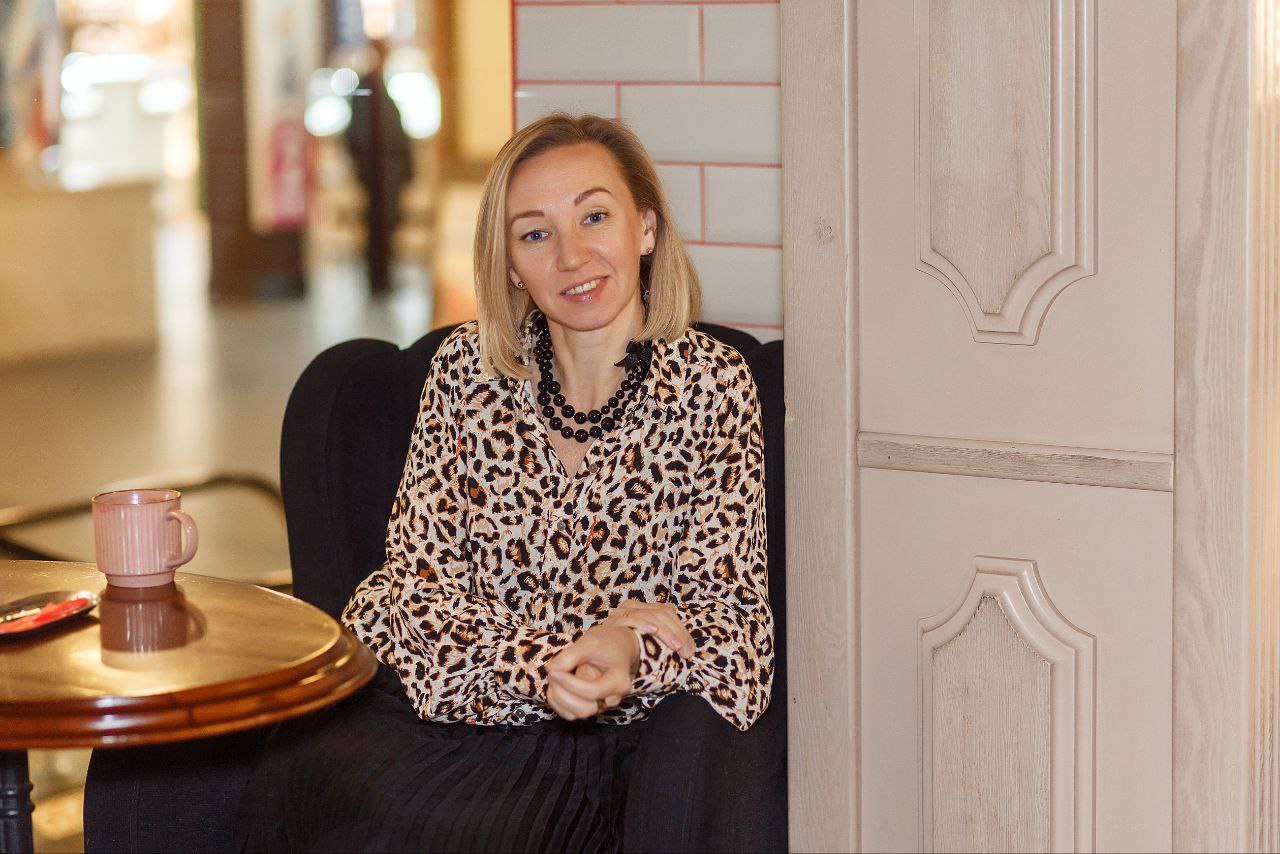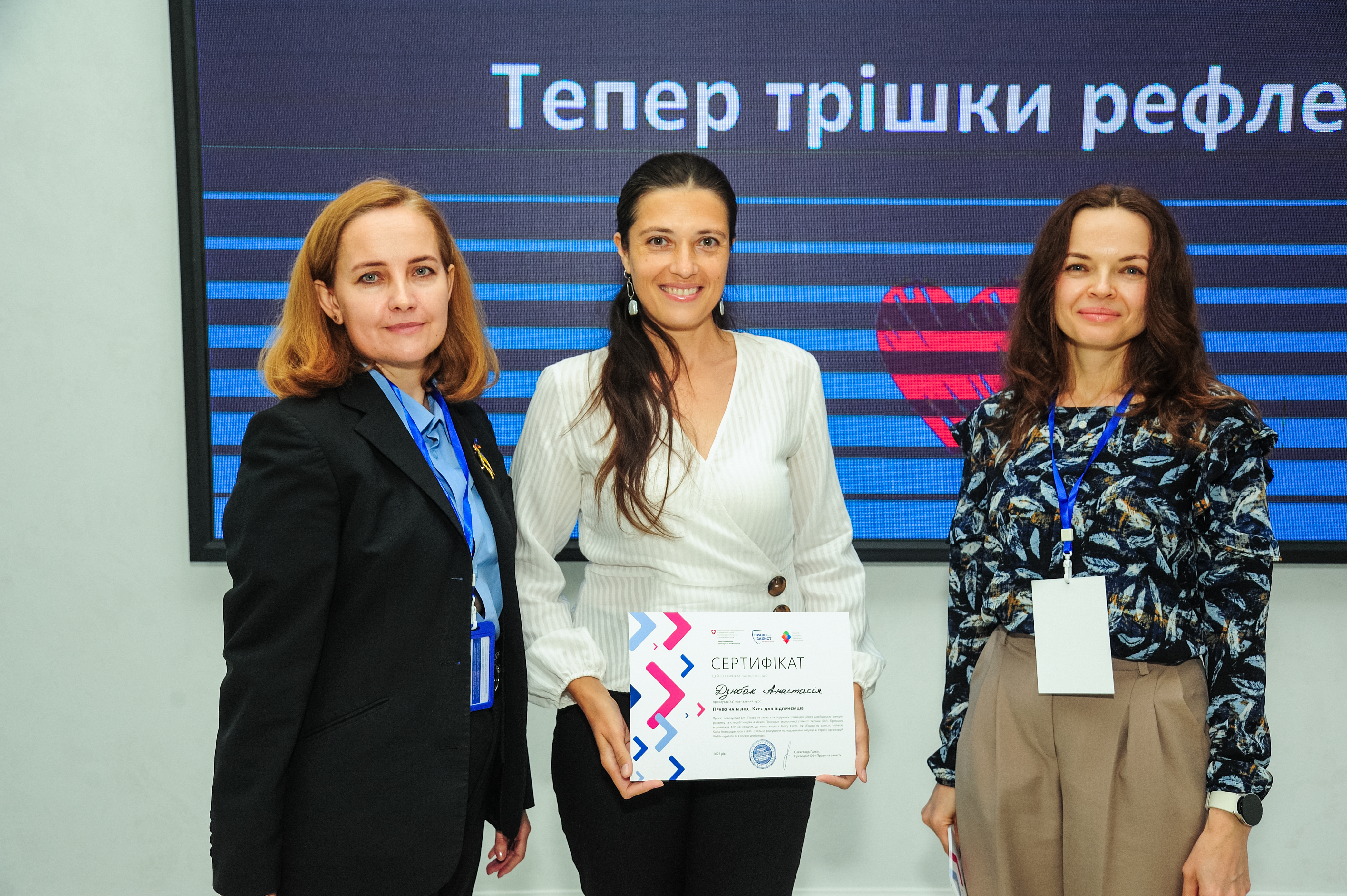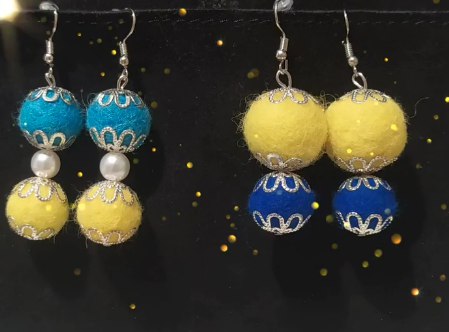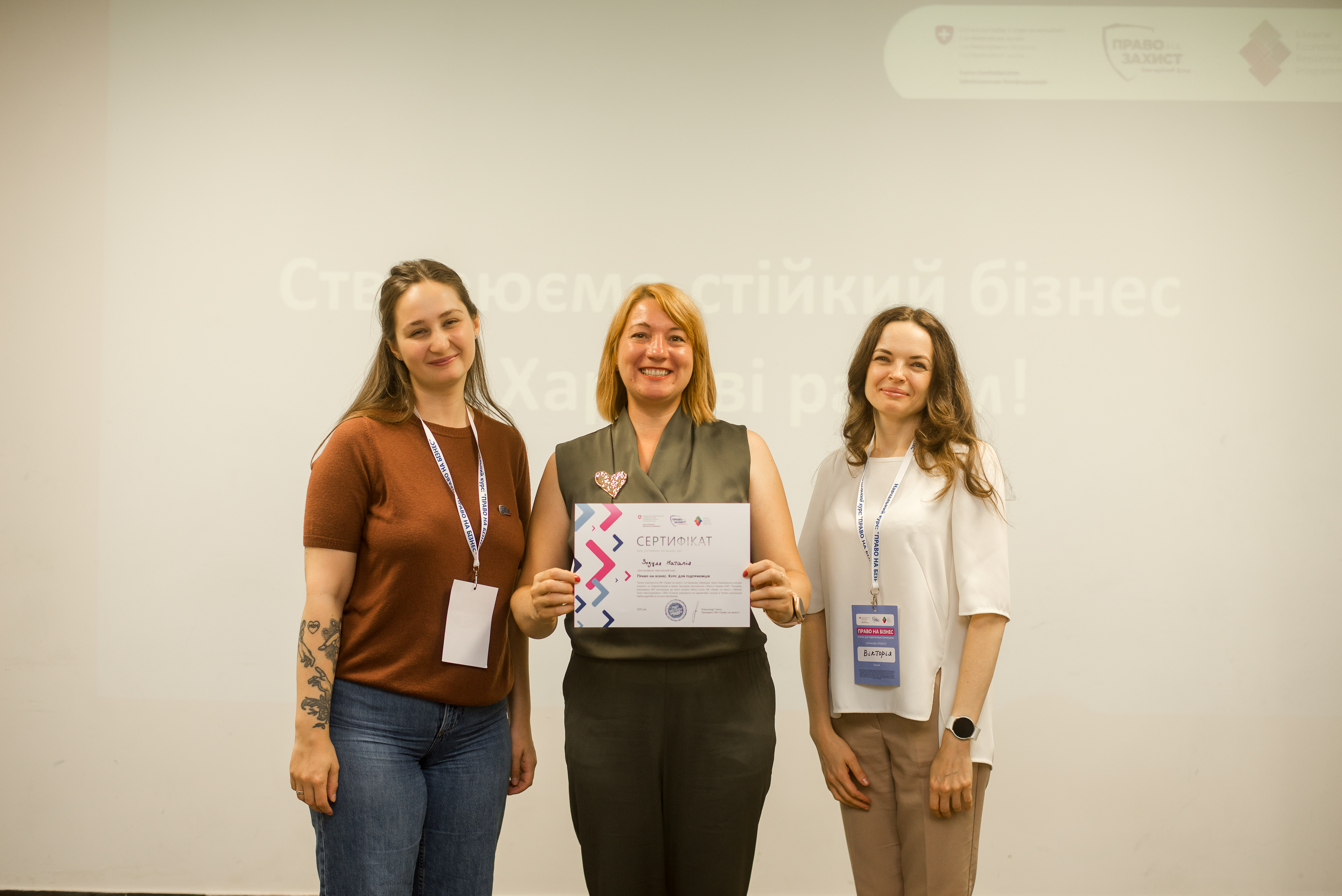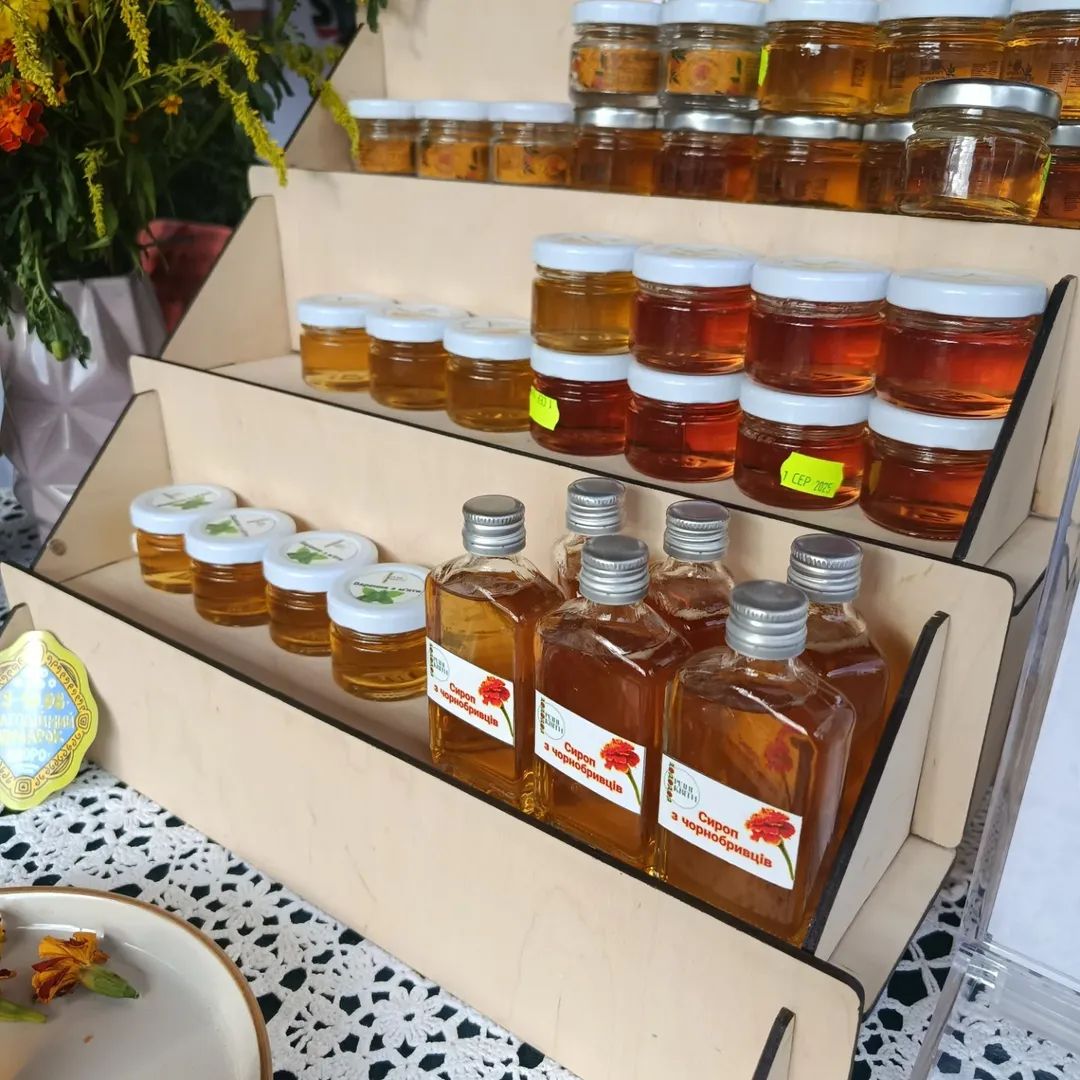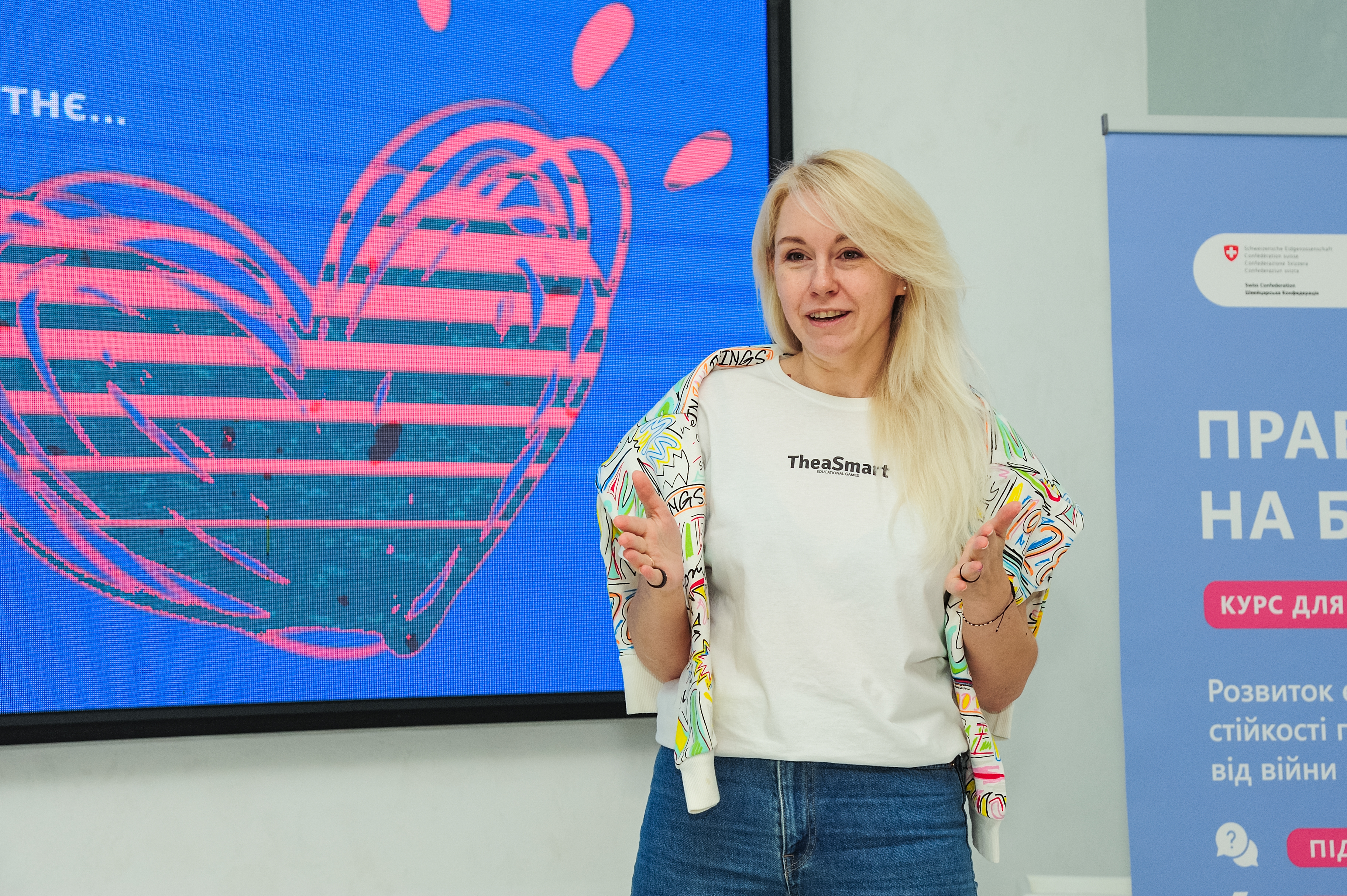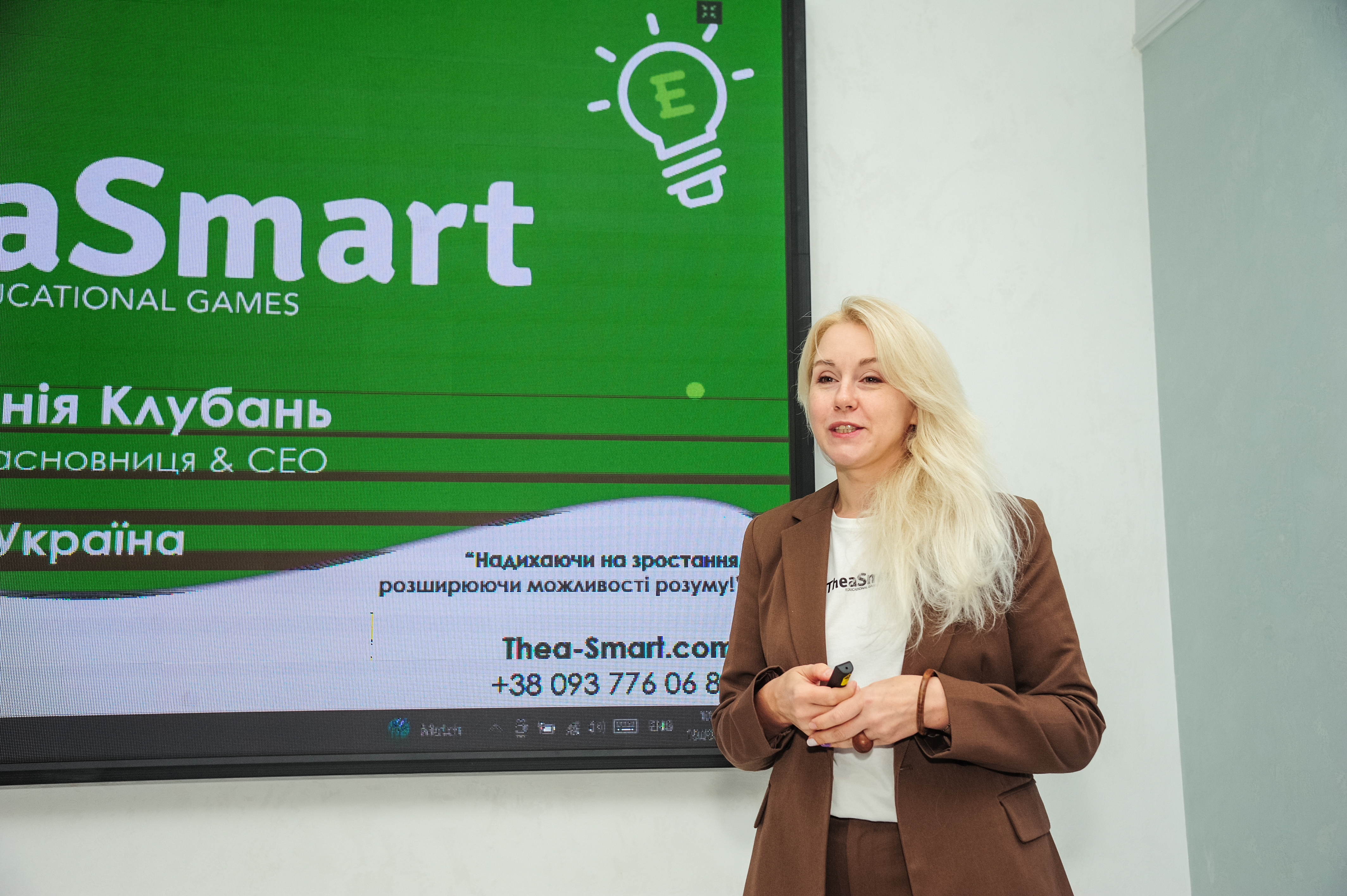-
Unfortunately, nothing was found for your request, you can search for another keyword, or contact us with your question through the feedback form
Search results (25)
All results (25)
The Right to Business: Success Stories of Training Graduates in Kharkiv and Vinnytsia (2023–2025)
October 7, 2025
Anastasiia Seredchenko, 2023, Kharkiv
Business: Travnevi — craft scented candles
Anastasiia started making candles in 2018 as a hobby, which later grew into her own brand. After the war began and her husband joined the Armed Forces of Ukraine, she registered as a sole proprietor and started building her business in frontline Kharkiv. Taking The Right to Business course was an essential step for her — it helped her structure her processes, develop her brand identity, and define her development strategy. Thanks to grant support, Anastasia purchased materials and equipment, expanding production. The Travnevi brand combines naturalness, aesthetics and Ukrainian motifs, symbolising light and support even in the darkest times.
TravneviVasyl Bobryk, 2025, Vinnytsia
Business: Production of pickled hot peppers, Podillia Flame
Vasyl is a veteran of the Armed Forces of Ukraine who decided to start his own business after his service. After learning about the course from a Red Cross employee, he joined to gain new knowledge and meet like-minded people. Each training trip brought inspiration and practical tools for improving his business. Thanks to the course, Vasyl updated his approach to marketing, finance, and pricing. Now he is confidently optimising production and expanding his customer base.
Podillia FlameOlena Olkhovska, 2024, Kharkiv
Business: Torba — Craft sewing production — merchandise, shopping bags, backpacks
Olena founded an eco-friendly brand under the slogan “One bag instead of a thousand plastic bags.” Returning to Kharkiv after the evacuation, she decided to implement her idea despite all the difficulties. During the course, she gained not only knowledge but also a supportive community that helped her systematise her business and understand the path forward. Thanks to a grant, she equipped a showroom, purchased printing equipment, and expanded her product range. Her team includes internally displaced persons and people with disabilities, and the collective is actively working to create conditions for a sustainable future.
TorbaHanna Bohdanova, 2025, Vinnytsia
Business: Abba Art Design — Decor for children’s rooms (Etsy shop)
Hanna creates wooden height charts, posters, and other personalised decor for children’s rooms. Before the war, she worked as a land surveyor, and during her maternity leave, she turned her hobby into a business. After moving from Kramatorsk to Yampil, she continued her work on the international marketplace Etsy. The course gave her a powerful impetus for development — Hanna expanded her product line, systematised her business model and gained confidence in her own abilities.
Abba Art DesignHanna Verbytska, 2024, Kharkiv
Business: Verbytska Home Decor — decorative items
Hanna, a child psychologist, decided to start making home decorations herself after the war began. Participating in the course was an essential step towards realising her idea — she gained systematic knowledge, set up online sales, and purchased the necessary equipment. The support she received helped Hanna expand her product range and find customers. In addition to her business, she actively volunteers at the Sewing Unit, which sews adaptive clothing for the wounded — her new equipment now serves this cause as well.
Verbytska Home DecorAnastasiia Dzyubak, 2025, Vinnytsia
Business: the Woollen Asset art club — mobile workshop
Anastasia is creating an art space called Woollen Asset— a workshop on wheels that conducts travelling master classes in communities in the Vinnytsia region. She enrolled in the course to learn how to develop a business plan and calculate the financial aspects of the project. Thanks to the training, she understood the structure of the business model, learned how to manage risks and developed the creative component. Now she is gradually putting this knowledge into practice, expanding the art space and attracting more participants.
Woollen Asset art clubNataliia Zozulia, 2025, Kharkiv
Business: Native Flowers — production of marmalade and seasonings from marigolds
Nataliia is originally from the Kharkiv region, where she was actively involved in community initiatives and women’s forums. It was there that she conceived the idea of creating unique products from marigolds — a symbol of Ukrainian warmth and home. After the full-scale invasion began, she started experimenting with jams, sauces, and seasonings, turning her idea into a real business. Her slogan, "Try the taste of my mother’s flower bed," has already become recognisable among customers in Ukraine and abroad. The Right to Business course helped Nataliia gain confidence in her abilities and plan for scaling up production. Now the entrepreneur dreams of having her own workshop, modern packaging and entering the international market.
Native FlowersKseniia Kluban, 2025, Vinnytsia
Business: TheaSmart — educational games and EdTech solutions
Kseniia is the co-founder of TheaSmart, a company that creates eco-friendly educational games for children. After the destruction of production facilities in Kharkiv, she moved with her family to Vinnytsia, where she restarted her business. She expected to find practical tools and support in the course, and these expectations were fully met. Thanks to the training, Kseniia structured her activities, improved her financial planning, and launched new products. Now her company is actively developing even in the difficult conditions of war.
TheaSmart
